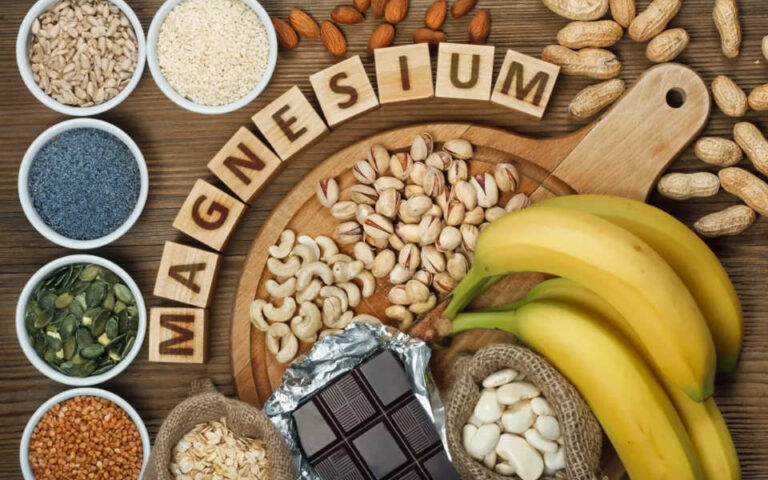Walk into any pharmacy, health food store, or simply a supermarket and you’ll find shelf after shelf loaded with minerals and vitamins of all types. Confused, you ask yourself what all these bottles are, the difference between them, and most importantly, should you be taking one?
Of course, you know what vitamins and minerals are. You’ve been reading about them all your life. But when it comes to picking out a bottle of these vitamins and mineral supplements for yourself, all your confidence vanishes into thin air? It’s because to make this decision, there’s a lot you need to learn like:
- What vitamins and minerals really are
- Why do you need them
- How these vitamins and minerals affect you
- What vitamins and minerals do I need?
People from all across the globe spend a significant portion of their money buying essential vitamins and minerals every single year. Why? To live a longer, more vigorous life with better health free from any health problems. Are they finding it? Absolutely. And so can you, once you understand how important these vitamins and minerals are and how you can prevent yourself from falling victim to an underlying deficiency.
This article aims to familiarise you with the most common vitamins and minerals in food, their respective roles and functions, recommended intake, and how to get the most of them. Once you understand the basics, the stocked-up shelves with countless bottles of vitamins and minerals will no longer feel confusing or scary.
The alphabet soup of nutrition –
What are Vitamins and Minerals?

You’ve probably been hearing about how important vitamins and minerals are for years, and you’ve finally decided to make the best use of them for better health. Good decision. But now what?
What you need to do is gather the information that will help you unlock the door to good health. This knowledge that you require is no secret and not hard to understand as well. All you need are the basics of how vitamins and minerals function so that you can choose a course of action that best suits you.
Your health is now in your own hands, for now as well as for the future. So buckle up as we’re about to get started.
1. Why do you need vitamins and minerals?
With every passing second, a lot is going on inside your body. It makes new skin, bones, and muscles while churning out fresh blood to carry oxygen and nutrients to faraway cells. It is formulating chemical messengers to carry messages from one organ to another while instructing every little cell exactly how to function so you get to live another day. Sounds fascinating, doesn’t it?
But to make all this happen smoothly without any hiccups, your body needs raw materials to work with, and these raw materials are none other than vitamins and minerals. These chemical agents cannot be prepared by the body itself which means you need to keep supplying them from the outside for adequate functioning. These vitamins and minerals are critical for performing hundreds of different roles in the body like:
- Wound healing
- Strengthening immune system
- Maintaining vision
- Keeping bones healthy
- Regulate nerve conduction
- Improving skin health
- Repairing cellular damage
- Extracting energy from food
- Prevent birth defects
- Make teeth stronger
Vitamins and minerals are called micronutrients because your body needs them in tiny amounts, but even failing to get them in these smaller quantities can virtually guarantee diseases like scurvy (vitamin C deficiency), blindness (vitamin A deficiency), and rickets (vitamin D deficiency).
If both vitamins and minerals are so important for health, are they any similar to each other? The answer is no, and in the next section, we’ll learn how.
2. Difference between vitamins and minerals
Despite being categorised as micronutrients, there is a vast difference between vitamins and minerals. Let’s find out more about it:
Chemical composition: Vitamins are organic which means that they are derived from living beings while minerals are non-organic.
Nutritional requirement: All vitamins are required by the body to function properly in comparison to only a handful of the most important minerals only.
Types: Vitamins are divided into water-soluble and fat-soluble subtypes whereas minerals are categorised into macro-minerals and trace minerals.
Heat Stability: Minerals are not vulnerable to heat whereas vitamins are destroyed when exposed to high temperatures.
3. On the edge – are you deficient in vitamins and minerals?
If you are not getting a particular vitamin or mineral for a long time, chances are you may develop a deficiency. If nothing is done to address this underlying deficiency, you can even get a deficiency disease like scurvy and rickets. Hence, it’s extremely important that you keep a lookout for any symptoms of a potential vitamin or mineral deficiency and take the necessary steps before things get out of control. The most common signs to look out for in this context are mentioned below:
- Brittle nails and hair
- Mouth ulcers or cracked corners of the mouth
- Hair loss
- Gum bleeding
- Altered vision, especially at night
- Excessive dandruff or scaly patches on the head
- Restless leg syndrome
- Altered bowel habits
- Abdominal pain
- Fatigue
- Decreased immunity resulting in repeated infections
- White or red bumps on the skin
- A racing heart or irregular heartbeats
- Tingling or numbness in legs and arms
- Vomiting and/or nausea
- Excessive muscle cramping
- Loss of appetite
Remember that deficiencies can be really hard to pin down. Sometimes, they hardly produce any symptoms, and even if they do, they are barely noticeable, like being unusually tired or feeling a little under the weather. These types of symptoms are easy to blame of all sorts of think, so you may not think of a vitamin or mineral deficiency straight away. But if you really feel like your current health isn’t what it used to be, get yourself a daily intake of vitamins and minerals chart and ask yourself if you are getting the required amount of these nutrients.
4. Where can I get my daily minerals and vitamins?
Not a fan of vitamins and minerals supplements? Don’t worry, you always have an option to load up on them through natural measures. In fact, food is the single best way to get your fair share of all important vitamins and minerals without fearing any adverse outcome. So what are the foods that you need to include in your daily diet? The table mentioned below will help you sort out the types of food to consume depending on which vitamin or mineral you require. It’s easy to understand and follow and will definitely make your life easier.
| Vitamin A | Vitamin B6 | Vitamin D |
| Beef liver | Bananas | Mackerel |
| Fatty fish | Avocados | Shrimp |
| Milk | Beef | Fortified milk |
| Egg yolks | Chicken | Canned sardines |
| Cheese | Fish | Herring |
| Vitamin B1 | Vitamin B7 | Vitamin E |
| Wheat germ | Beef liver | Spinach |
| Ham | Almonds | Wheat germ |
| Beef liver | Peanut butter | Wheat germ oil |
| Peanuts | Eggs | Sunflower oil |
| Green peas | Oat bran | Safflower oil |
| Vitamin B3 | Vitamin B9 | Vitamin K |
| Chicken | Beef liver | Turnip greens |
| Salmon | Spinach | Cabbage |
| Beef | Orange juice | Brocooli |
| Peanut butter | Romain lettuce | Spinach |
| Potatoes | Beets | Beef liver |
| Vitamin B5 | Vitamin B12 | Vitamin C |
| Beef liver | Beef liver | Oranges |
| Eggs | Clams | Brussel sprouts |
| Avocados | Tuna | Strawberries |
| Mushroms | Yoghurt | Broccoli |
| Chicken breast | Milk | Collard greens |
| Pottasium | Iron | Iodine |
| Avocados | Beef liver | Iodised table salt |
| Bananas | Spinach | Milk |
| Potatoes | Resins | Nuts |
| Milk | Beans | Eggs |
| Beans | Blackstrap mollasses | Cheese |
| Calcium | Selenium | Zinc |
| Yoghurt | Organ meats | Lean meats |
| Canned Sardines | Lean beef | Oysters |
| Milk | Seafood | Beans |
| Cheese | Brazil nuts | Almonds |
| Tofu | Chicken | Dark-meat turkey |
| Magnesium | Copper | Chromium |
| Peanuts | Oysters | Beef |
| Bananas | Avocados | Eggs |
| Avocados | Lobsters | Apples |
| Milk | Potatoes | Corn kernels |
| Collard greens | Beef liver | Sweet potatoes |
Vitamins – Water Soluble Vitamins

So let’s begin our journey with vitamins. Vitamins are broadly classified into two categories, the first being water-soluble vitamins. As it’s clear from the name, these vitamins are absorbed quickly and taken to tissues rapidly but cannot be stored inside for a long time. These water-soluble vitamins include the following two subcategories:
1. The B vitamins: one big happy family
The B family is one huge and happy family of 8 different vitamins that pull together to keep you strong and healthy. You need each and every one of these members to live healthily. When you have plenty of these B’s in the body, they synchronise to keep the body running optimally. But remember! Just like you cannot make a salad without all the veggies in your pantry, you cannot expect to function normally without having each of these B vitamins in your body. You need them all and if you’re running low on some, the others cannot do their jobs properly.
Why you need the B vitamins
The table mentioned below describes all B vitamins with their respective functions and recommended dietary allowance (RDA) per day.
| Type of B Vitamin | RDA in Men | RDA in Women | Functions |
| B1 (mg) | 1.2 | 1.1 | Helps in nerve growth, memory, and food-to-energy conversion |
| B2 (mg) | 1.3 | 1.1 | Aids in growth and development, energy release, and synthesis of hormones and red blood cells |
| B3 (mg) | 16 | 14 | Plays a role in energy release, hormone synthesis, toxin removal, and healthy cholesterol management |
| B5 (mg) | 5 | 5 | Aids in the synthesis of vitamin D, red blood cells, and certain hormones, takes part in the food-to-energy conversion |
| B6 (mg) | 1.7 | 1.3 | Needed for synthesis of enzymes, hormones, and proteins, helps protect from heart disease |
| B7 (mcg) | 30 | 30 | Helps extract energy from food |
| B9 (mcg) | 400 | 400 | Regulates cell growth and division, prevents heart disease and birth defects |
| B12 (mcg) | 2.4 | 2.4 | Necessary for healthy red blood cell synthesis |
2. Vitamin C – the champion
The world has gone crazy over vitamin C supplements during the past few years, and for the right reasons. These people are well aware that a daily dose of vitamin C can keep them healthy, and they know that it is this magical vitamin that’s going to help them feel better when they are down with an infection.
Is vitamin C really magical? Definitely. How? We’re just about to find out.
Why you need vitamin C
There isn’t much that vitamin C doesn’t do for you. This champion vitamin alone is needed for roughly 300 different activities inside the body. Here’s a list of everything it accomplishes with reference to your health:
- Vitamin C is needed to make collagen – the glue that holds your skeleton together, builds strong blood vessels, and attaches the muscles to your bones.
- It helps heal wounds and injuries a lot faster and more efficiently.
- It acts as a premium-quality antioxidant that not only fights the nasty free radicals but also amps up the performance of other antioxidants already present in the body.
- Your immune system needs lots of vitamin C to keep fighting those pesky germs from causing an infection.
- Hormones like catecholamines (stress hormones) require adequate vitamin C levels in the body.
- It helps to keep you miles away from heart disease and cancer while curing certain types of male infertility, regulating blood pressure, and managing diabetes in a better way.
RDA for Vitamin C: The RDA for vitamin C is around 90 mg/day for men and 75 mg/day for women.
And this marks the end of all the water-soluble vitamins your body needs to function optimally. Next up: fat-soluble vitamins.
Vitamins – Fat Soluble Vitamins

These vitamins are the ones that your body absorbs with diet and can easily store in the liver and fatty tissue. They are of the following types:
1. Vitamin A – the double-barrelled protector
This ancient vitamin was the first of its kind to be discovered back in 1913. However, its importance was well-known to mankind centuries ago in ancient Greece where Hippocrates used to advise his patients to eat beef liver to cure failing eyesight. This remedy seemed to help patients with failing vision see much better. And hundreds of years later, we now know why: the magic of vitamin A.
Why you need vitamin A?
Here’s a list of everything that vitamin A does inside your body:
- It has been labelled as an anti-infective agent by putting up strong front-line barriers to germs. It strengthens and grows the lining of all internal and external surfaces of the body so it can keep all intruders away.
- Vitamin A also regulates the immune system whenever need arises.
- It is counted among the most important vitamins and minerals for kids as it helps them grow and strengthen their teeth and bones.
- Vitamin A helps in the healthy replacement of old, worn-out cells with newer ones.
- Certain forms of this vitamin (including carotenes) possess antioxidant activity to fight free radicals and keep the body protected from their damage.
- In desperate need of a skin miracle? Try vitamin A as it is also a great supplement to improve your skin texture and overall appearance.
- Vitamin also protects your vision and protects it from age-related deterioration.
RDA for Vitamin A: Adult men and women require 900 and 700 mcg of vitamin A in their daily diet.
2. Vitamin D – looking at the sunny side
Planning to go out in the sun without sunscreen? Go on. But only for 10 to 30 minutes a day. On a nice, sunny day in June, this duration is more than enough to get you your daily dose of vitamin D. Now you know why they call it the sunshine vitamin.
Why you need vitamin D
Looking forward to strengthening your bones? Calcium is all you need, right? Yes, but without vitamin D, it’s not going to work. And that’s not the only thing this sunshine vitamin is responsible for. It also:
- Vitamin D not only helps absorb calcium into the blood but also regulates its amount and ensures that you always have enough of it.
- Your immune system needs vitamin D to function properly.
- It strengthens your teeth and bones and ensure that they remain healthy.
- Interestingly, it can also play a role in preventing certain cancers, especially colon cancer
Research on exploring more roles of vitamin D in the body is underway and we must say, its future seems “bright and sunny” for sure.
RDA for Vitamin D: Adult men and women need 15 mcg of vitamin D every day for healthy living.
3. Vitamin E – E for excellency
Vitamin E tops the vitamin report card for its excellency – it is a top student in immune modulation, holds an A+ grade in cancer prevention, and is at the head of its class for cardiovascular health. All those medals and honours and it still mingles with other fellow vitamins in a perfectly well manner, too. So much for a vitamin, right? But that’s not all. There is a lot more this vitamin does for your health which has been perfectly summed up in the next section.
Why you need vitamin E
Let’s explore some key roles of our star vitamin within the human body.
- Vitamin E pairs up with vitamin A and C to boost antioxidant protection and saves your body from free radical damage
- It’s your heart’s best buddy and can do everything possible to protect it. Controlling blood pressure, reducing bad cholesterol, boosting cardiac health – you name it!
- Something exclusively for the ladies: add this vitamin to your daily life for a chance to manage the dreadful, and extremely painful periods (dysmenorrhoea).
- Tired of the darkened, dull, and lifeless skin due to excessive sun exposure and other factors? Vitamin E can save the day.
RDA for Vitamin E: All adult males and females require 15 mg of vitamin E every day for better cardiovascular functioning, immunity, and overall health.
4. Vitamin K – the band-aid
What happens when you are slicing some onions in the kitchen and accidentally cut your finger? First things first, you shriek and maybe swear under your breath, but next, you quickly grab a towel and press it against your finger. And within the next few minutes, the bleeding stops. So you just put a band-aid on it and get back to making dinner.
Have you ever wondered what makes the bleeding stop? It’s your body’s very own natural band-aid – vitamin K.
Why you need vitamin K
Here is what vitamin K is responsible for inside your body”
- Whenever you injure yourself, it makes blood clots to quickly stop bleeding.
- It helps the bones hold onto the calcium so that they remain strong and healthy.
- It keeps the blood calcium levels in check and makes sure that this mineral reaches the places where it’s actually needed.
- It also plays a role in healing your wounds.
- Lastly, vitamin K is cardioprotective which means that it lowers the risk of any damage occurring to your heart.
RDA for Vitamin K: All adult males and females require up to 120 μg/day of vitamin K to ensure adequate nutritional adequacy.
This marks the end of our journey exploring the 13 essential vitamins your body needs to stay healthy. Let’s move on to the list of minerals that you require for good health.
Minerals – The Macro Minerals

Have you ever felt a little rocky? Totally makes sense, given the fact that the variety of minerals in your body is so high that it can keep a geologist busy for days. You need these minerals as much as you need vitamins, so do not underestimate them. All these minerals in your body may only add up to a market value of a few quid only but as far as your health is concerned, they are worth way more than their weight in gold.
So let’s dive into these minerals, starting with macro minerals which are the ones your body requires in higher quantities.
1. Electrolytes – the balancers
Are you all charged about an easy way to improve your health? We’re talking about none other than your electrolytes – minerals that carry electrical charges and readily dissolve in water. The three key electrolytes in your body include potassium, sodium, and chloride.
Since more than 70 percent of your body comprises water, these electrolytes can be found everywhere – in your blood, cells, spaces between cells, lymph, and every place you can think of. Because these particles carry electrical charges, it gets easier for them to move back and forth through the cell membranes. So as this cycle of movement continues, these minerals are able to carry other nutrients along with them as they move inside and bring waste products out of cells.
Why you need electrolytes
Confused why you should be so worried about getting all your electrolytes? Here are the reasons:
- These electrolyte minerals balance the amount of water in your body.
- They play an important role in carrying impulses along your nerves.
- Your muscles can contract and relax only as long as you have adequate amounts of these minerals.
- You need these minerals to transport sugar and other nutrients into cells.
- They help in regulating your heartbeat and maintaining a healthy blood pressure.
RDA for electrolyte minerals: You need at least 3,500 mg per day of potassium and no more than 6g of sodium chloride combined (2.4g of sodium alone) per day.
2. Calcium – drink milk!
Let’s go back into your childhood: it’s a quiet Friday night and you’re so excited to spend the weekend doing everything you love. And suddenly, you hear your mom calling you out from the kitchen to drink your glass of milk. As much as you hated gulping down that milk every night, it’s funny how you are doing the same thing with your kids now. The question is: why? And chances are you probably know the answer: it’s a great source of calcium.
Did you know that calcium is the most abundant mineral in your body? It is so common that this tiny mineral alone is responsible for around 2% of your total body weight. Fascinating, isn’t it? Now you finally know why mothers never compromise on that glass of milk every night.
Why you need calcium
You are probably aware that calcium makes your bones and teeth stronger. But is that all it does? Definitely not. Here is a list of functions attributed to calcium:
- Around 98% of your body’s calcium is present in your bones, which means that it regulates bone health, and ensures that the skeletal system remains strong and healthy.
- Calcium regulates your heartbeat and aids in controlling blood pressure.
- It plays a role in conducting signals from the brain to other parts of the body
- Multiple enzymes and hormones in your body require calcium to perform their respective duties.
- Calcium is needed by the body to build connective tissue.
- It prevents problems like colon cancer and high blood pressure.
RDA for Calcium: You need at least 700mg of calcium per day to make sure your bones remain strong and healthy.
3. Magnesium – the magnificent mineral
The next time you are asked to go nuts, just go for it!
Nuts are a rich source of magnesium, another mineral that plays a huge role in maintaining health. Distributed abundantly throughout your body, you definitely cannot live well unless you have adequate amounts of this magnificent mineral in your blood.
Why you need magnesium
Wondering what magnesium does for your body? Mentioned below are some key details you need to know about the wonders of this mineral:
- Every single cell in your body requires magnesium to produce energy
- This mineral is needed to maintain strong teeth and bones, relax muscles, and send messages along nerves
- It seems to help people suffering from diabetes and asthma to a certain degree.
- Magnesium can help with heart problems, especially issues with heart rhythms.
- It is needed by the body to use other vitamins and minerals properly, such as vitamin C.
RDA for Magnesium: All adult males and females need to take 420 mg of magnesium per day to make sure your body’s working all right.
And that’s all for macro minerals, but we’re definitely not done with minerals as yet. Let’s move forward to discuss trace minerals now.
Minerals – Trace Minerals
Here’s a quickie for you: Does your body need arsenic? True or False?
While you might be tempted to answer as false, because you’ve possibly never heard of this mineral before, the answer is true. You do need arsenic but the reason why you did not know about it is that it’s a trace mineral.
You only need trace minerals in tiny amounts only yet they’re full of surprises when it comes to monitoring their benefits. From carrying oxygen to synthesising hormones to building your bones; they do it all. While some of them don’t seem to be beneficial, we cannot be so sure. After all, the world of trace minerals is yet to be fully explored.
Why you need trace minerals
If you have less than a teaspoon full of minerals throughout your entire body, consider it as a trace mineral. But don’t undermine these minerals as most of them play critical roles in regulating health. Let’s find out more about them:
Tabulated below are some of the most important trace minerals along with functions and recommended dietary allowances.
| Trace Mineral Name | RDA | Functions |
| Chromium | 50 to 200 mcg | Controls blood sugar |
| Copper | 1.5 to 3.0 mg | Required for synthesis of red blood cells and antioxidant enzymes |
| Fluoride | 1.4 to 4.0 mg | Protects the teeth against decay, builds strong bones |
| Iron | 10 to 15 g | Required to form haemoglobin for red blood cells for oxygen transport |
| Iodine | 150 mcg | Important for manufacturing thyroid hormones |
| Manganese | 2.5 to 5.0 mg | Required for digestion of proteins and tissue formation |
| Molybdenum | 75 to 250 mcg | Regulates normal growth and development in the body |
| Selenium | 55 to 70 mcg | Required for making antioxidant enzymes |
| Zinc | 12 to 15 mg | Contributes to building a healthy immune system |
Conclusion – Stock up on the Elements of Good Health
Getting healthier seems difficult, and almost impossible at first, but a little struggle today will definitely pay off over time. While you are focusing to better your health, don’t forget your vitamins and minerals. These tiny agents are needed by your body to practically carry out everything – to make thousands of hormones, enzymes, and chemical messengers, repair damaged tissue, extract energy, defend itself from infection, remove waste, regulate heart function, keep your eyes sharp, and brains strong and the list goes on…
So educate yourself about them, make them your best friends, and ensure that you have enough of them in your body to enjoy good health. Make sure to eat all healthy foods containing these vitamins and minerals & supplements can always be tried whenever you feel like you are falling short of one.
Give yourself a chance to get healthier today. It’s now or never!


